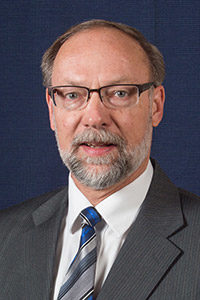Even as He chose us in Him [Christ] before the foundation of the world, that we should be holy and blameless before Him. In love He predestined us for adoption as sons through Jesus Christ, according to the purpose of His will, to the praise of His glorious grace, with which He has blessed us in the Beloved. (Eph. 1:4-6)
The importance of the teaching of unconditional election, the first main point of doctrine affirmed in the Canons of Dort, cannot be overstated. As J. I. Packer once put it, the doctrine of election preserves the simple gospel truth that “God saves sinners.” Sinners do not save themselves. Only God saves, and he does so out of his undeserved love and free decision to grant his people salvation in Christ—and that “before the foundation of the world”! By affirming this, the Synod of Dort preserved the biblical teaching that salvation is by grace alone. And at the same time, the Synod of Dort provided a sure footing for confidence in God’s invincible grace in Christ. 
The Arminian Doctrine of Conditional Predestination
To appreciate the Canons’ teaching on unconditional election, it is important to remember that they were articulated in a specific historical context. The Synod of Dort was convened to address the controversy that broke out in the Reformed churches of the Netherlands in response to the teaching of James Arminius (1560-1609) and his followers, the “Remonstrants.”[1] Arminius, a brilliant student of Theodore Beza, Calvin’s successor in Geneva, initiated the controversy during his tenure as a pastor of the Reformed church in Amsterdam and subsequently as a professor of theology at the University of Leiden.
Shortly before his death in 1609, Arminus summarized his teaching on election in two important works, his Public Disputations and Declaration of Sentiments.[2] In these works, Arminius expressed serious objections to the Reformed view of unconditional election as it was set forth in Article 16 of the Belgic Confession.[3] According to this Article, the salvation of those whom God mercifully elects in Christ depends entirely upon God’s gracious purpose of election, and not upon any human merit or achievement. Only God saves, and he does so out of his undeserved love and free decision to grant his people salvation in Christ—and that “before the foundation of the world”! Share on X
Contrary to the consensus of the Reformed churches, Arminius argued for what is most aptly described as a doctrine of “conditional election.” In his Declaration of Sentiments, Arminius summarized his teaching by distinguishing four decrees within God’s eternal mind and will. Though Arminius formulated these four decrees in a highly “scholastic” and theological manner, his position can be simply stated in four points:[4]
First, God eternally and absolutely wills to save all fallen sinners, and therefore has decreed to appoint his Son Jesus Christ as the Mediator and Savior of all who are lost. The first and foundational decree of God expresses his universal and gracious intention to save all fallen sinners without exception upon the basis of Christ’s atoning work.
Second, God eternally and absolutely wills to receive into favor all fallen sinners who repent and believe, and to leave under his wrath all who remain impenitent and unbelieving. Though God eternally and absolutely wills the salvation of all, he also wills to save only those who choose to believe and persevere in believing and to damn those who choose to remain in their sin and unbelief.
Third, God eternally wills to appoint the means by which fallen sinners are able to come to faith and repentance. These means include the ministry of the Holy Spirit, who uses the Word and sacraments to invite fallen sinners to respond to the gospel in the way of faith and repentance. The actual salvation of fallen sinners depends upon their willingness to meet the “conditions” of the gospel invitation.
And fourth, God eternally decrees to save those particular persons whom he foreknows will believe and persevere in believing in response to the gospel; and he eternally decrees to damn those whom he foreknows will choose not to believe and persevere in believing. The election and actual salvation of some fallen sinners rests upon God’s foreknowledge of their free choice to believe and to persevere in faith.
Arminius’ fourth point clearly draws out the implications of the preceding three points for the doctrine of election. Though God wills absolutely and antecedently to save all fallen sinners, he wills relatively and consequently to save only those particular persons whom he foreknows would believe and to damn those whom he foreknows would not.[5]
The basis for God’s decree to save and damn “certain particular persons” is his foreknowledge of the way these persons freely (independently) choose to respond to the gospel call. The ultimate condition and ground for the actual salvation of sinners rests upon the free choice of some to believe and to persevere in faith.
On the one hand, God’s universal will and intention to save all fallen sinners is frustrated or thwarted in the case of all those who persistently refuse to respond in faith to the invitation of the gospel. And on the other hand, God’s decision to save the elect is dependent upon, or in consequence of, their choice to believe and to persevere in doing so.[6]
The Reformed Doctrine of Unconditional Election
In the first main point of doctrine, which sets forth the doctrine of unconditional election in opposition to Arminius’ teaching, the Canons begin with several articles that summarize the key themes of the biblical gospel. These include the fact that “all people have sinned in Adam and have come under the sentence of the curse and eternal death” (Art 1), that God has manifested his love in the sending of his only-begotten Son (Art. 2), and that God’s displeasure continues to rest upon those who do not believe the gospel of Jesus Christ (Art.3).
Within the framework of these truths—all have sinned and are worthy of death, God in love sent his Son to redeem fallen sinners, such sinners must believe in Christ to be saved—the authors of the Canons raise the fundamental question to which the biblical doctrine of election is addressed: why do some believe and repent at the preaching of the gospel, but others remain in their sins and under the just condemnation of God? The answer to this question at its deepest level is God’s unconditional election in Christ of some persons to salvation:
The fact that some receive from God the gift of faith within time, and that others do not, stems from [God’s] eternal decision. For all his works are known to God from eternity (Acts 15:18; Eph. 1:11). In accordance with this decision he graciously softens the hearts, however hard, of his chosen ones and inclines them to believe, but by his just judgment he leaves in their wickedness and hardness of heart those who have not been chosen. And in this especially is disclosed to us his act—unfathomable, and as merciful as it is just—of distinguishing between people equally lost. (Article 6)
Election is God’s unchangeable purpose by which he did the following: Before the foundation of the world, by sheer grace, according to the good pleasure of his will, he chose in Christ to salvation a definite number of particular people out of the entire human race, which had fallen by its own fault from its original innocence into sin and ruin. Those chosen were neither better nor more deserving than the others, but lay with them in the common misery. (Art. 7)
Because this sovereign and gracious purpose of God in the election of his people is the source and basis of faith, the Canons go on to assert that it cannot therefore be based upon faith: “This same election took place, not on the basis of foreseen faith, of the obedience of faith, of holiness, or of any other good quality and disposition, as though it were based on a prerequisite cause or condition in the person to be chosen, but rather for the purpose of faith, of the obedience of faith, of holiness, and so on” (Art. 8).
After articulating the Scriptural teaching of unconditional election, the Canons further affirm that this sovereign and gracious election of a particular number of persons unto salvation means that some sinners have been “passed by” and “left” in their sins (Art. 15).[7] The formulation of the Canons is expressly “infralapsarian.” The formulation of the Canons is expressly “infralapsarian.” Share on X Those whom God does not elect to save in Christ belong to the company of all fallen sinners who “by their own fault” have willfully plunged themselves into a “common misery.”
The language of this article ascribes reprobation to God’s good pleasure or will in a way that is clearly distinguished from his will to save the elect. Whatever parallel may exist between God’s merciful election and just reprobation, there is a profound asymmetry between them. In the case of the elect, God mercifully and graciously elects to grant them salvation in and through the work of Christ. In the case of the reprobate, God demonstrates his justice by choosing to withhold his grace and to finally condemn them for their sins and unbelief.[8]
Conclusion
The teaching of unconditional election glorifies God by acknowledging that salvation is rooted in his eternal, immutable, and merciful decision in Christ to save his people. The Triune God is the God of our salvation. By contrast, the Arminian teaching of conditional election bases the salvation of sinners upon their own independent action. But Dort also comforts believers by reminding them that the proclamation of the gospel will unfailingly achieve its purpose—the salvation of undeserving sinners from every tribe, tongue, people and nation. God’s gracious purpose of election will not be frustrated. And those whom the Father gives to Christ will never be snatched from his hand (John 10:28).
Endnotes
[1] Arminius’ followers are commonly designated “Remonstrants” because they presented their views in the form of a Remonstrance or formal petition to the civil authorities in 1610. This Remonstrance presented the Arminian view in the form of five opinions. The five main points of doctrine articulated in the Canons are, accordingly, a reply to each of these opinions. For a helpful treatment of the historical background to and resolution of the controversy at the Synod of Dort, including a translation of this Remonstrance, see Crisis in the Reformed Churches: Essays in Commemoration of the Great Synod of Dort 1618-1619, P. Y. De Jong, ed. (2nd ed.; Grandville, MI: Reformed Fellowship, Inc., 1968 [2008]).
[2] Public Disputations, in The Works of James Arminius [hereafter: WJA], trans. James Nichols and William Nichols (London: 1825, 1828, 1875; reprint, Grand Rapids: Baker, 1986), 2:80-312; and Declaration of Sentiments of Arminius, delivered before the States of Holland, in WJA 2:580-732.
[3] Article 16 declares: “We believe that, all the posterity of Adam being thus fallen into perdition and ruin by the sin of our first parents, God then did manifest Himself such as He is; that is to say, merciful and just: merciful, since He delivers and preserves from this perdition all whom He in His eternal and unchangeable counsel of mere goodness has elected in Christ Jesus our Lord, without any respect to their works; just, in leaving others in the fall and perdition wherein they have involved themselves.”
[4] See Declaration of Sentiments, in WJA, 1:653-54, for Arminius’ more scholastic statement of these four points.
[5] Richard A. Muller, “Grace, Election, and Contingent Choice: Arminius’ Gambit and the Reformed Response,” in The Grace of God, the Bondage of the Will, ed. Thomas R. Schreiner and Bruce A. Ware (Grand Rapids, MI: Baker, 1995), 274: “According to this doctrine, God genuinely wills that which he knows will never happen, indeed, what he wills not to bring about!”
[6] Muller, “Grace, Election, and Contingent Choice,” 266: “… if the salvation of human beings rests on divine foreknowledge, the human being is clearly regarded as the first and effective agent in human action.”
[7] For an extensive treatment of the Synod of Dort’s treatment of reprobation, see Donald W. Sinnema, “The Issue of Reprobation at the Synod of Dort (1618-19) in Light of the History of this Doctrine” Ph.D. dissertation, University of St. Michael’s College, Toronto School of Theology, 1985).
[8] Cf. Herman Bavinck, Reformed Dogmatics, trans. John Vriend, ed. John Bolt (Grand Rapids, MI: Baker Academic, 2003), 2:396: “[Sin] was the sufficient and definitely the meriting cause of eternal punishment. There is a distinction, after all, between the decree of reprobation and reprobation itself. The former, namely, the decree, has its ultimate ground in the will of God alone, but the act of reprobation itself takes account of sin.”


